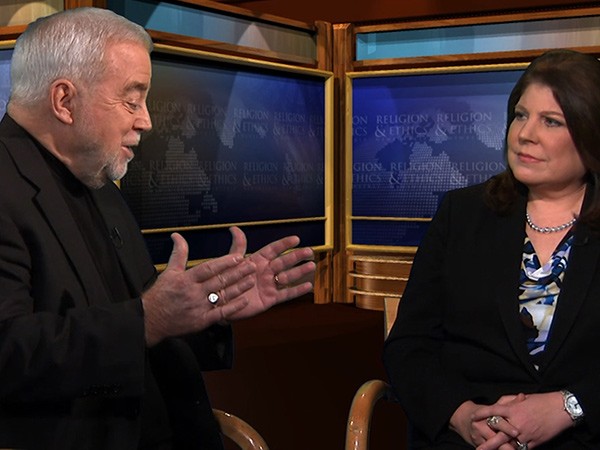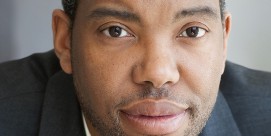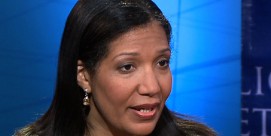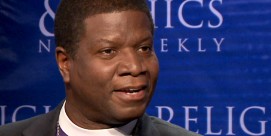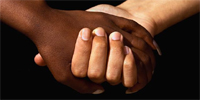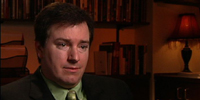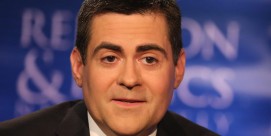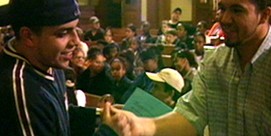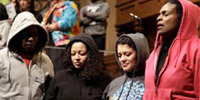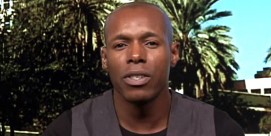In This Episode << SLIDE LEFT TO SEE ADDITIONAL SEGMENTS
America’s Original Sin
Religion & Ethics NewsWeekly host Bob Abernethy and managing editor Kim Lawton interview Jim Wallis, editor-in-chief of Sojourners magazine, about his new book, America’s Original Sin: Racism, White Privilege, and the Bridge to a New America and his challenge to white churches to become multiracial communities of faith.
Read an excerpt from America’s Original Sin by Jim Wallis (BrazosPress, 2016):
New Talks, New Bridges, New America
Another place for needed interracial talks to occur is in and between religious congregations. Faith communities that are becoming more multiracial are some of the best places to have the difficult, painful, and personal conversations Americans need to have about our racial future. If we understand that we are all children of God together, created in the image of God, that’s a good starting point to patiently explain to one another how different our racial experiences have been right here in our own country—and even in our
churches. If we worship together, hear God’s Word together, and confess our sins together, while our children are in Sunday school together, we may be in the best position of any group to have the new talks that Americans need to have for the sake of a more multiracial future.
Even here in the United States, it is the multiracial faith communities that reflect what the church was meant to be from its founding. Creating new relationships, “sister churches” between white and black and Latino and Asian-American churches, across our own cities’ racial dividing lines, is often a first and necessary step. Visiting one another’s churches, hearing one another’s preachers, singing with one another’s choirs all can be perspective- and life-changing experiences. Pastors must make racial reconciliation and justice a regular pulpit topic in their own churches. But all this is more than just creating “Kumbaya” moments of emotional fellowship. It’s also about setting the stage for the new talks we need to have together about the changes of policy and practices we need in our country. Only with deliberate efforts and energy to build cross-racial relationships between churches can we create the “safe spaces” we need for the hard but necessary conversations we must have in order to build a bridge to a new America.
What do you have to offer and how can you offer it? That is an “altar call” for all of us.

